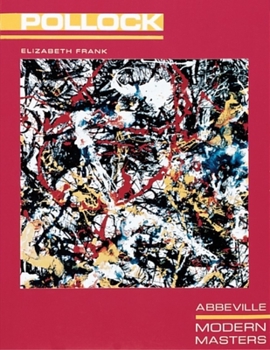Book Overview
Jackson Pollock (1912-1956) revolutionized the art of this century with his famous "pouring paintings" of the late 1940s and early '50s. No artist of our time has been more controversial, and Pollock's reputation as the archetypal Abstract Expressionist has assumed mythic overtones. The balanced evaluation presented in this well-reasoned overview is long overdue.
Format:Paperback
Language:English
ISBN:1558592547
ISBN13:9781558592544
Release Date:December 1983
Publisher:Abbeville Press
Length:128 Pages
Weight:1.50 lbs.
Dimensions:0.5" x 8.5" x 11.0"
Customer Reviews
1 rating
More than I ever imagined
Published by Thriftbooks.com User , 16 years ago
I started out with a lot of wrong impressions, including two big ones. A: Pollock only ever did drip paintings. B: they're only drips. A: wrong, and B: wrong. I came to this book when, quite unexpectedly, I discovered that I needed to know things that his drip paintings were teaching. Part of what convinced me that I needed this information was reading about an analysis of the fractal dimension of these works, and how the dimension grew (i.e., increased in complexity) over his career - that math-y stuff works for me, it helped convince me to look more closely. No, don't expect a clear story, that's as good as I can make it. This book is by no means a catalog raisonne, but has enough of that work to get me started. (BTW, assuming that he discovered and painted some deep laws of perception, he wouldn't be the first or last artist to do so, but those are other stories.) This doesn't show Pollock's whole ouvre, it shows only part of that in color, and the reproduction (esp. B & W) doesn't rise to contemporary standards - hey, I got the book for a few bucks used, I'm not complaining. Even so, I'm learning what I came to learn - that still has no words, but I find it very satisfying. More than that, I'm learning about the larger body of work in which his fractals are embedded. It has huge energy, more than I ever realized. This author's sampling of Pollock's work shows a mental and physical intensity that perhaps only Picasso surpassed. It shows more, too, but I leave that to others to describe. Frank devoted some period of her life to creating this book and selecting the representative artworks. Of course, her text will be somewhat breathless and worshipful, given what it cost her. And, like so many art critics, she expresses clear thoughts in utterly unclear phrasing and vocabulary - to tell the truth, I edge quickly past the text to spend more time with Pollock's imagery. Still, amid all that, I find some value in reading about Pollock the man, the very odd man. I came for his thoughts, as laid down in paint on canvas, and Frank has rewarded my search better than I ever hoped. -- wiredweird






